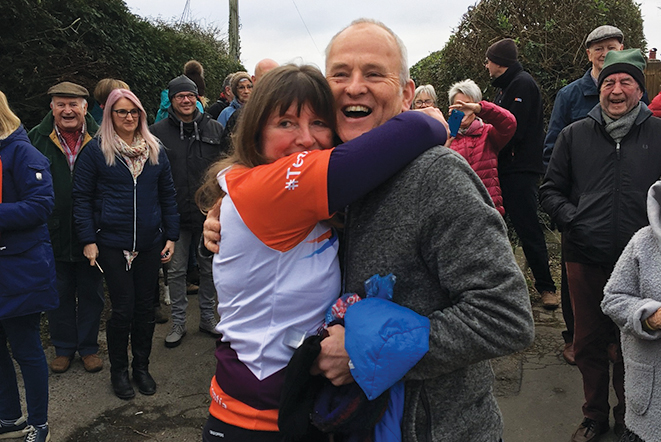On many occasions I have people come into my office looking for help with pain, which they are sure was caused by a previous injury – a fall from a horse or from playing a combative sport like rugby, football, hurling or road running. In recent years I have found myself questioning whether this is really true.
One of the maxims that I use when helping someone is that the body will heal itself, as long as we support this innate ability and remove any interference to it
It is obvious that you can have an injury so severe that it can be very damaging and impede recovery, but surely if you are claiming that shoulder or knee pain is the result of repetitive strain from sport – then when you stop playing surely that pain would go away. So why doesn’t it?
During a consultation I use a very specific form of muscle testing to globally assess the neurological ability of the body. This measures nerve response, reflexes, muscle tone, strength and mobility and helps you to understand were any interference is coming from.
Understanding how reflexes influence the musculoskeletal system is the most important factor in our ability to move well with coordination and fluidity.
The Myotactic Reflex is the reflex responsible for knee jerk when a doctor uses a reflex hammer below your knee and expects your knee to jump forward. In medical terms it is known as the deep tendon reflex. It is used as a screen to differentiate between motor neuron lesions of the central nervous system or spinal nerve roots or peripheral nerves.
If I could ask you to try something for me – stand up and do a little jump in the air. You will have consciously thought about bending your knees and jumping up but the landing was taken care of subconsciously. As you didn’t have to think about it, this is known as an autonomic action.
When we start to think about how much of our movement and stability is autonomic you will begin to see that it is a very large amount. If you kick a ball, do you pay any conscious attention to the leg that is standing on the ground, while the other is doing the kicking? What about your arms swinging when you walk along?
The truth is that every movement you make is largely autonomic, and the autonomic nervous system controls the overall tone of the nervous system that is imperative for everything you do. If the autonomic part of our movement will not work properly, due to a neurological problem or weakness and imbalance of muscle tone, then the body’s defenses are lowered and the risk of injury is increased and recovery time impeded.
I support clients of all ages to understand where the inference to their autonomic nervous system, muscles, reflexes and joints is coming from and then by removing the interference and strengthening the autonomic system, help the body to repair itself so you can enjoy feeling stronger, more mobile and free of pain again.
If you would like help with an old injury or to assess your nervous system, I have clinics in Skibbereen, Douglas or Kinsale and you can contact me on 087 958 2362. If you would like me talk to your club or association about health and fitness or the importance of reflexes please give me a call at the same number.



